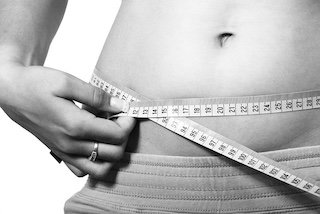Embarking on a weight loss journey can be a challenging yet rewarding endeavor. However, there are instances where individuals find themselves diligently reducing their food intake, only to encounter minimal progress on the scale. Why am I not Losing Weight, Despite Eating Less? 🤔
Let’s explore some key factors underpinning this phenomenon.
1. Metabolic Adaptation:
- Your body is a remarkable machine that adapts to changes in energy intake. When you significantly reduce your calorie consumption, your metabolism may slow down as a survival mechanism. This adaptive response can hinder weight loss progress over time.


Suggested: Things to Avoid While on a Diet
What Exercise Burns the Most Calories
2. You Should Eat Good Types of Oil, Omega-3:
- The type of fats you consume plays a crucial role in your overall health and metabolism. While reducing calorie intake is important, incorporating healthy fats like omega-3 fatty acids can support metabolic function. These fats are found in foods like fatty fish, flaxseeds, and walnuts.
3. Underestimating Caloric Intake:
- It’s common for individuals to underestimate the number of calories they consume, even when they believe they are eating sparingly. Hidden calories in condiments, cooking oils, and snacks can add up, impacting overall energy balance.
4. Nutrient Deficiencies:
- Focusing solely on cutting calories without ensuring adequate nutrient intake can lead to nutrient deficiencies. A deficiency in essential nutrients can affect metabolism and overall well-being, potentially impeding weight loss.
5. Lack of Physical Activity:
- While dietary changes are crucial for weight management, incorporating physical activity is equally essential. A sedentary lifestyle can hinder the calorie-burning process, making it challenging to create the necessary calorie deficit for weight loss.


Suggested: Herbal Teas for Weight Loss
How to Stop Emotional Eating
6. You Drink Too Much Caffeinated Drinks:
- While moderate caffeine consumption can have benefits, excessive intake may impact your weight loss efforts. Caffeine can affect cortisol levels and disrupt sleep patterns, potentially hindering your body’s ability to burn calories efficiently. Consider moderating your caffeine intake and ensuring it aligns with your overall health goals.
7. Stress and Cortisol Levels:
- Chronic stress can elevate cortisol levels, a hormone associated with fat storage, particularly around the abdominal area. High stress levels may counteract weight loss efforts, even with reduced calorie intake.
8. Inadequate Sleep:
- Insufficient or poor-quality sleep can disrupt hormonal balance, impacting appetite-regulating hormones like leptin and ghrelin. This imbalance may lead to increased cravings and a tendency to consume more calories.
9. Water Retention:
- Factors such as high sodium intake, hormonal fluctuations, or inadequate hydration can contribute to water retention. This can mask actual fat loss on the scale, creating the illusion of stalled progress.
10. Medical Conditions:
- Certain medical conditions, such as thyroid disorders or hormonal imbalances, can influence weight management. Consultation with a healthcare professional can help identify and address any underlying health issues.
11. Lack of Consistency:
- Achieving sustainable weight loss requires consistency in both dietary habits and lifestyle choices. Inconsistency, whether in meal timing or food choices, can hinder progress.


12. Muscle Loss:
- Drastic calorie reduction without sufficient protein intake and strength training can result in muscle loss. Since muscle contributes to overall metabolism, a decrease in muscle mass can slow down the calorie-burning process.
Suggested: Gym Twice a Week: Is it Enough for Muscle Gain?
Gym Motivation 101: Kickstart Your Fitness Transformation
If you find yourself in the perplexing situation of not losing weight despite eating less, it’s crucial to assess various aspects of your lifestyle. Consider factors such as metabolism, nutrient intake, physical activity, stress levels, and sleep quality. A holistic approach that combines a well-balanced diet, regular exercise, and lifestyle modifications is key to overcoming weight loss plateaus.
Consulting with a healthcare professional or a registered dietitian can provide personalized guidance tailored to your unique circumstances, ensuring a more effective and sustainable path to achieving your weight loss goals. Remember, the journey to a healthier you is multifaceted, and small adjustments can lead to significant and lasting results. 🌱💪 #WeightLossPlateau #HealthyLiving #NutritionTips
